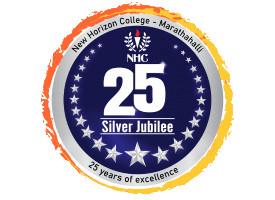3 ways to answer "What are your career aspirations?"

Are you preparing for an interview? Do you have an idea about the probable questions asked? Well, in any interview you face, the most frequently asked question is, ‘What are your career aspirations?. This is asked to know an individual’s professional goals and ambitions. It helps them assess whether the candidate’s passion and motivation align with the company’s vision. It is a win-win situation for both the recruiter and the interviewee, because even he/she gets to know whether they are a good fit and can adapt to the company.
Understanding career aspirations
Career aspirations basically mean what your plans are for the future. It refers to the aims that an individual desires to fulfill in the course of their career. These aspirations can be as simple as mastering a skill and working for the desired company or can be serious and challenging, like holding a certain position for a certain number of years, working with a dream salary package, etc. These objectives also reflect your professional goals for the company, which can examine how you can contribute to fulfilling their dreams.
There are some time tested ways to define your career aspirations that make your responses compelling and make a lasting impression on the interviewer:
Way 1: Aligning with the company’s goals
- Read about the company’s goals and mission.
- Research the company’s website.
- Read the job description carefully.
- In your answers, try to include these keywords, which will assure them that both of you are working toward a common vision.
- Also, add your personal touch by mentioning additional goals and how you are eligible to accomplish some key goals.
Example response:
|
As an interior designer, my objective is to develop state-of-the art tools for designing better and to innovate in the space of interior design. I see my career aspirations are in sync with the company’s vision, particularly in delivering customer satisfaction. |
Way 2: Highlighting long-term professional growth
- Express your long-term aims.
- This indicates that you have designed a clear career path.
- It shows your seriousness and commitment to your career.
- Mention only realistic goals, not superficial ones.
Example response:
|
In the next five years, I want to see myself as a senior project manager leading large-scale projects. During the course, I am sure I will hone my leadership skills further and will be in a position to assign projects, supervise my juniors, and leverage my expertise and skills to contribute to the continued growth of the company. |
Way 3: Emphasizing skill development and learning
- Express your enthusiasm and eagerness to update and reskill yourself frequently to stay relevant and updated.
- Explain how learning or developing new skills will help in your career progression.
- This shows your commitment to improving yourself by stating your plan of action.
- These are some remarkable professional traits.
Example response:
|
My career aspiration is to become a leading software developer. I am open to upskilling and reskilling every now and then, as learning the latest technologies is my passion. I am planning to take technical courses in the coming days that will equip me to achieve my goal. Apart from this, I want to refine my soft skills like communication, leadership, etc. The opportunities that your company offers have excited me to apply for this role. |
Common mistakes to avoid
There are some common mistakes that you should avoid that may reduce your chances of getting selected.
- Overly generic responses: Be specific about your goals. Don’t give vague answers, which may sound insincere. For example, instead of saying “I want to become successful,” you can say “I wish to become skilled, which will boost my career growth.”
- Unrealistic career aspirations: Be very practical while responding to this question. If you list out too many goals or give impractical answers, you may sound unrealistic and irrational.
- Failing to relate aspirations to the job role: This happens when you have not done thorough research about the company and the job role. So be aware of what the company’s vision is and what it is expecting from you.
Apart from these, some pitfalls you should avoid are: showing a lack of enthusiasm, focusing only on personal growth, neglecting the company’s goals, and not being honest.
Tips for crafting your unique answer
After knowing the company’s objectives, take time to consider whether your goals and the company’s aspirations match. If yes, take time to appreciate how working for a particular company can enrich your professional career and aid in the company’s growth. This will give you a glimpse of your own career aspirations and what your future course of action should be to achieve them. You can use the job description to craft your response. Practice your answer well in advance to come across as authentic and confident. Strike a perfect balance between realism and impressiveness.
Conclusion
Answering this question can be easy or tough. Preparation is the key. Make use of the ways to present your professional aspirations during the interview. Consider approaching a career coach to get deeper insights and add different perspectives. Mastering the response is important, as the company wants to know whether you are a potential candidate and your aspirations are compatible with theirs.
Knowing how to articulate your career aspirations is a critical soft skill. Combine this with insights from high-income skills and HR interview prep to stand out. Students seeking the right foundation often look into bba degree colleges in bangalore or best degree colleges bangalore for comprehensive development.
Frequently asked questions (FAQs)
How do I align my career aspirations with a company’s role?
In order to align your career aspirations with the company’s role, read about the company in detail. Understand their long-term vision on their website or through the job description provided in the application. During the interview, make use of these keywords to stand out from the rest. Assure them that you are enthusiastic and eager to learn to add your value to the company’s growth in your own way.
What if my long-term career goals do not align perfectly with the job I am applying for?
In such a scenario, you can consider the following options:
- Assess whether the company and its vision are worth working for. If yes, be adaptable enough to consider them as your own.
- You can also mention your own ideas and perspectives in a subtle way.
- Evaluate the company’s goal from a new dimension. You may find the opportunity to develop new skills or gain experience.
- If it is too difficult for you to compromise on your goals, then look out for a company that works with the same intention.
How detailed should my career aspirations be in an interview?
Typically, it should be a short one. Don’t exaggerate, and be realistic. Demonstrate how your aspirations and the company’s vision are compatible. Mention some specific skills you wish to learn to achieve your goal in the given time frame. Show enthusiasm, commitment, and eagerness that you are a perfect fit for the role.
Can I mention multiple career aspirations in my answer?
Yes, multiple career aspirations can be mentioned when they align with the company’s goals. But make sure they are relevant to the role you are applying for. It displays your holistic approach to your career growth. For instance, if you want to become a project leader, you can say that along with enhancing your project management skills, you wish to develop leadership skills.
How do I address my career aspirations if I’m still uncertain about my future career path?
Even if you don’t have a concrete future plan, there are certain goals like growth, becoming skilled, and becoming knowledgeable that are very general and basic. Demonstrate your willingness to learn and grow. Also, take time to become self-aware and know where your interests lie. Having a look at the job description may guide you in formulating your career path.






